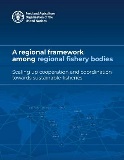Publications
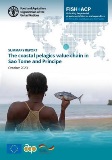
The coastal pelagics value chain in Sao Tome and Principe
2023
This report presents the results of the value chain analysis of the coastal pelagics value chain in Sao Tome and Principe conducted from 2021-2022 by the value chain development programme FISH4ACP. This report contains a functional analysis of the value chain, assesses its sustainability and resilience, develops an upgrading strategy and an implementation plan to which FISH4ACP will contribute.
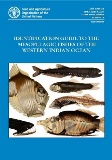
Identification guide to the mesopelagic fishes of the western Indian Ocean
2023
This comprehensive guide encompasses a total of 473 species of mesopelagic fishes (i.e. those fishes residing primarily between 200 and 1 000 m depth during daytime) that are known to occur in the western Indian Ocean. It aids in their accurate identification, offering dichotomous keys to all taxa.
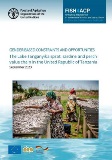
The Lake Tanganyika sprat, sardine and perch value chain in the United Republic of Tanzania: Gender-based constraints and opportunities
2023
This report presents the results of the value chain analysis of the Lake Tanganyika sprat, sardine and perch value chain in The United Republic of Tanzania conducted from 2021-2022 by the value chain development programme FISH4ACP. This report contains a functional analysis of the value chain, assesses its sustainability and resilience, develops an upgrading strategy and an implementation plan to which FISH4ACP will contribute.
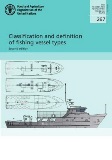
Classification and definition of fishing vessel types
2023
This technical paper constitutes an update on the 1985 FAO publication Definition and classification of fishery vessel types, and provides descriptions and classification of the main semi-industrial and industrial fishing vessel types: trawlers, purse seiners, seiners, dredgers, gillnetters, trap setters, longliners, pole-and-line vessels, trollers, multipurpose vessels.
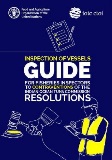
Inspection of vessels guide for fisheries inspectors to contraventions of the Indian Ocean Tuna Commission resolutions
2023
This guide is related to the enforcement of the Conservation and Management Measures of the Indian Ocean Tuna Commission and has been prepared to assist fisheries inspectors with action related to monitoring and enforcement. Its purposes are to facilitate the completion of inspection reports while implementing port State measures or conducting at-sea inspection and to identify actions to be taken by the inspecting authority.
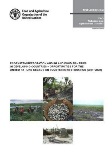
Ecosystem restoration and inland food fisheries in developing countries
2023
The review presents the strong business case for inland food fisheries in developing countries to be either a co-benefit, or very often the main benefit, of ecosystem restoration. In view of the current state of inland water aquatic habitats the potential for restoration is high. Realizing this potential requires concerted action to overcome current challenges, foremost of which is the invisibility of inland fisheries in many policy arenas as well as technical and scientific fora.
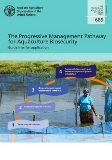
The Progressive Management Pathway for Aquaculture Biosecurity
2023
This guidance document for Progressive Management Pathway for Aquaculture Biosecurity (PMP/AB) application contains the rationale, vision, mission, scope, goals and benefits of the PMP/AB. The four stages of the PMP/AB are described in detail, including the overall objectives and key outcomes to complete each stage.
-manual-evidence-in-fisheries-offences-effective-collection-and-use.tmb-th600x450.jpg?Culture=en&sfvrsn=8aca0404_1)
Indian Ocean Tuna Commission (IOTC) Manual – Evidence in fisheries offences: effective collection and use
2023
This Manual introduces the role and impact of successful evidence gathering and processing in combating illegal, unreported and unregulated (IUU) fishing and describes the pillars for evidence gathering – the national legislation and regional and international obligations.
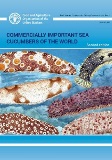
Commercially important sea cucumbers of the world
2023
Sea cucumbers are harvested and traded in more than 90 countries worldwide. They are exploited in industrial and small-scale fisheries, nearly from pole to pole, especially in the tropics. In some fisheries, more than 20 species are exploited by fishers.
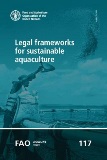
Legal frameworks for sustainable aquaculture
2023
The document provides an overall vision and framework intended to accelerate aquaculture transformation in Asia and the Pacific region through innovations and investment, and to provide guidance to partners from the public, private and development communities to actively engage with the region in transforming aquaculture to more efficient, inclusive, resilient and sustainable food systems.
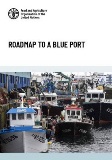
Roadmap to a Blue Port
2023
Roadmap to a Blue Port is intended to assist fishing ports to implement a Blue Transformation approach at strategic and operational level through the involvement of stakeholders, the implementation of projects and actions, and the measurement of impact.
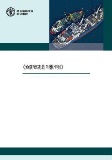
Voluntary Guidelines for Transshipment / Directives volontaires relatives au transbordement / Directrices voluntarias para los transbordos
2023
The Voluntary Guidelines for Transshipment address the regulation, monitoring and control of transshipment of fish, which have not been previously landed, whether processed or not. The Voluntary Guidelines for Transshipment address the regulation, monitoring and control of transshipment of fish, which have not been previously landed, whether processed or not.
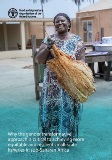
Why the gender transformative approach is critical to achieving more equitable and resilient small-scale fisheries in sub-Saharan Africa
2023
This issue brief aims to highlight the benefits of adopting the gender transformative approach (GTA) in small-scale fisheries (SSF) projects and initiatives in sub-Saharan Africa. It serves as an introduction for various stakeholders wishing to gain an initial understanding of how to embed the GTA in fisheries programming.
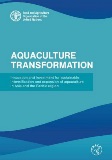
Aquaculture transformation | Innovation and investment for sustainable intensification and expansion of aquaculture in Asia and the Pacific region
2023
The document provides an overall vision and framework intended to accelerate aquaculture transformation in Asia and the Pacific region through innovations and investment, and to provide guidance to partners from the public, private and development communities to actively engage with the region in transforming aquaculture to more efficient, inclusive, resilient and sustainable food systems.
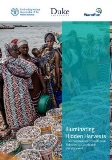
Illuminating Hidden Harvests
2023
Illuminating Hidden Harvests: the contributions of small-scale fisheries to sustainable development (hereinafter IHH) is a global study uncovering the contributions and impacts of small-scale fisheries through a multidisciplinary approach to data collection and analysis.
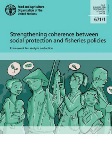
Strengthening coherence between social protection and fisheries policies | Framework for analysis and action
2023
At a global level there is increasing recognition of the role that fisheries policies and social protection can jointly play in combating poverty and hunger, whilst simultaneously promoting sustainable natural resources management. Efforts are being made at the country level to bring together these two domains, but more needs to be done.
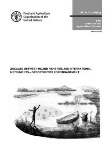
Linkages between inland fisheries and international instruments – Opportunities for engagement
2023
The ecosystem approach to inland fisheries management (EAIFM) requires the consideration of inland fisheries beyond the confines of the fisheries sector. Inland fisheries can be invisible in some fora and processes that can have major positive or negative impacts upon them.
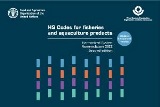
HS Codes for fisheries and aquaculture products. Harmonized System. Nomenclature 2022
2023
This publication, developed by the Food and Agriculture Organization of the United Nations (FAO), with the active support of the World Customs Organization (WCO), builds on the Harmonized System: Nomenclature 2022 edition. It presents all possible classifications for fisheries and aquaculture products by species, with a full description of each HS code, to facilitate its use within the fisheries sector, including aquaculture.
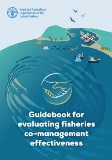
Guidebook for evaluating fisheries co-management effectiveness
2022
The Guidebook for evaluating fisheries co-management effectiveness offers a process and method to evaluate the performance of a fisheries co-management system and its plan in order to enhance its effectiveness in delivering benefits and in contributing to environmental, social and economic sustainability and good governance.

